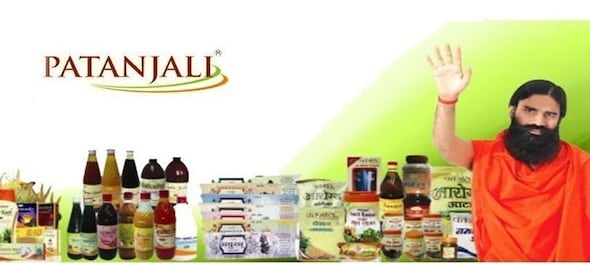
Yoga guru Ramdev's Patanjali Ayurved announced plans for initial public offerings (IPOs) of four more of its companies — Patanjali Ayurved, Patanjali Wellness, Patanjali Medicine, and Patanjali Lifestyle.
Currently, Patanjali Foods is the only listed group company. However, the IPO of this company did not come under the leadership of Ramdev. Instead, the company, listed as Ruchi Soya, was bought by Patanjali Ayurved in 2019 for Rs 4,350 crore under a resolution process.
Ramdev did not share any timelines for listing the Patanjali companies on Indian bourses. He, however, said Patanjali group turnover today is ₹40,000 crore, which they plan to raise up to Rs 1 lakh crore in the next five years.
Here’s a look at the timeline of the Patanjali brand and its highs and lows.
1995: The Patanjali Yogpeeth was set up in Haridwar, the first such initiative under the name of Patanjali.
1997: Patanjali started as a small pharmacy in Haridwar selling ayurvedic products.
2002: Baba Ramdev’s mass yoga camps were telecast on major spiritual television channels across the country.
2006: Patanjali was established as a private limited company.
2007: Patanjali was converted into a public limited (un-listed) company.
2010: Patanjali opened the world’s largest food park, 20 km from the holy city of Haridwar, Uttarakhand, India.
2012: Patanjali initiated marketing and promotion of its products through yoga camps with a swadeshi positioning that Patanjali products are purely ayurvedic and herbal.
2012: Patanjali hit revenue of Rs 450 crore and opened 450 exclusive Patanjali stores in the country.
2015: Patanjali hit revenue of Rs 2000 crore and opened 4000 exclusive stores.
2015: Patanjali signed a deal with Future Group to develop, market and distribute Patanjali products exclusively in the modern trade.
2015: Patanjali Noodles were launched, which landed the company in controversy. After Maggi was banned in India, Patanjali launched its instant atta noodles, which was restrained by the FSSAI even before the launch. The FSSAI claimed the company had failed to take the product approval.
2017: Patanjali hit revenue of Rs 10,561 crores and announced plans to introduce its clothing range
2017: Patanjali jumped from 173rd to 15th in the Brand Trust Report 2017.
2018: An inquiry was ordered by the FSSAI after viral images showed boxes of Patanjali's ayurvedic medicine on sale a month before the stated manufacturing date.
2018: Patanjali hit revenue of Rs 11,000 crore and launched its renewable energy division.
2019: Ruchi Soya Industries Limited was acquired by the Patanjali group for Rs 4,350 crore through an insolvency process.
2020: Patanjali Group achieved a turnover of around Rs 30,000 crore in 2020-21, helped by a revenue boost of Rs 16,318 crore from Ruchi Soya.
2020: During the COVID-19 pandemic, Patanjali launched the ‘Coronil and Swasari’ kit, which claimed to contain the cure for the viral disease. The Ministry of AYUSH ordered Patanjali to stop advertising the product as there was no evidence of it being a cure.
2021: Patanjali landed in controversy again when it claimed that its Coronil tablet was approved by the WHO for treating COVID-19. The Indian Medical Association issued a notice to Patanjali and asked for clarification. The WHO also clarified that it had not reviewed or certified any medicine for COVID-19.
First Published: Sept 16, 2022 1:08 PM IST
Check out our in-depth Market Coverage, Business News & get real-time Stock Market Updates on CNBC-TV18. Also, Watch our channels CNBC-TV18, CNBC Awaaz and CNBC Bajar Live on-the-go!


Lok Sabha Election 2024: Phase 5 voting concludes with over 57% voter turnout, experts weigh in on key battles
May 20, 2024 11:07 PM
BJP holds meeting in Delhi as polling underway for 5th phase
May 20, 2024 4:21 PM
UP Police arrests man after viral videos shows him voting multiple times
May 20, 2024 2:18 PM

